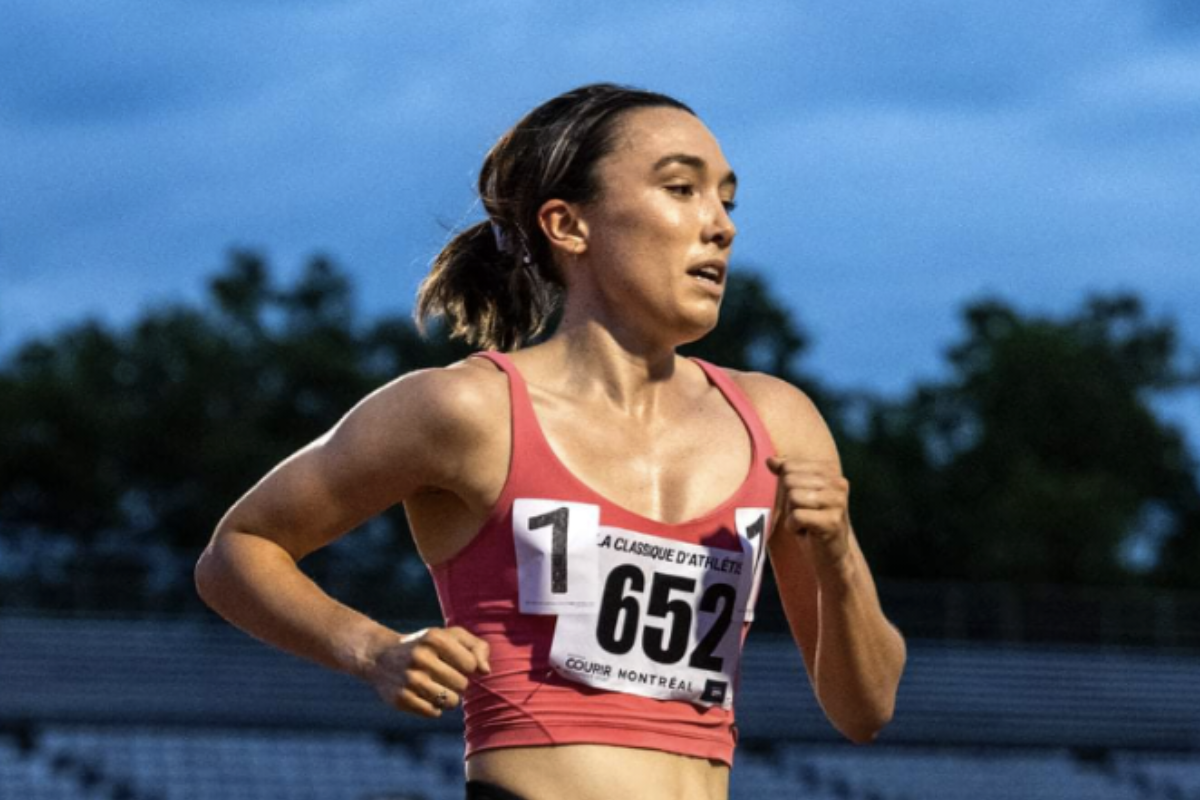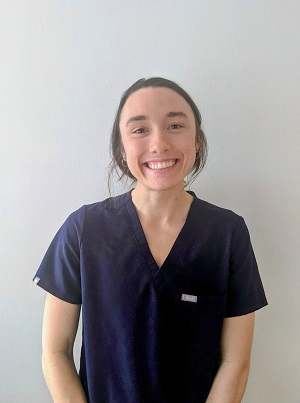Finding control over my epilepsy diagnosis
Summary:
Nursing student Becca Brennan was diagnosed with epilepsy when she was 12. In this Perspective for Purple Day, she reflects on her journey into competitive running and to nursing on the SickKids Neurology unit.
My journey with epilepsy started with a loss of control. When I was 12 years old, I began to experience uncontrollable jerking in my hands when I would wake up in the morning. I remember getting ready for school and my toothbrush would fly out of my hand, or I would drop the cereal bowl while eating breakfast. For a long time, I didn’t say anything about it because I thought, somehow, it must be normal. But one day my mom saw my hands jerk, and when she called my name, I couldn’t respond. It was as though every part of me was frozen except my hands.
What followed was a visit to the doctor and a referral to the neurology department at CHEO in Ottawa, where I’m from. Several tests later, I was diagnosed with juvenile myoclonic epilepsy, a form of epilepsy that is characterized by quick, uncontrolled muscle and limb movements.
Being diagnosed with epilepsy led to what felt like a loss of control that extended to more than just my hands. In those early years, I was frustrated and overwhelmed by my diagnosis. Suddenly many adults in my life were concerned with everything I did. Although now I understand why they were so worried, at the time I was just entering my teen years and all I wanted was my autonomy. Finding a medication balance was challenging as well. Most medication put me in a sedated state throughout the day, and suddenly I was losing control over how I was doing in school. I loved science, but I was told to drop my high school science courses to make it easier on me and my health. I felt like I had no control over my body or my future. Adding to that, by the time I started university I began experiencing generalized tonic-clonic (GTC) seizures, which can include full body spasming and losing consciousness.
Regaining control
I joined the track and field team at university around the same time I started to have more frequent GTC seizures. Sports have always been a huge part of my life, but I fell in love with running during my first year on the team. Not only did running help with my physical and mental health, but it allowed me to feel more in control of my body. Track makes me feel like I can still push myself to do amazing things, even though I have this condition.

It took some time and close work with my neurologist to figure out how to be safe in sport, but with an amazing support system, I have been able to achieve more than I ever thought was possible! I am still running competitively in Toronto. I previously competed for Team Ontario and have goals of representing Canada on the international stage one day!
A lifelong curiosity for medicine and a love of caring for others

Having epilepsy has been a formative part of who I am today. Although it is a difficult condition to grow up with, I am grateful because it pushed me to where I am now: pursuing a career in nursing.
As a patient at CHEO, some of my best memories were when my mom would take me to appointments at their neurology department. Not only did I love our tradition of getting a treat at the hospital cafe, but I was also fascinated by the tests that were done on my brain. I loved looking at photos of my MRI scans, and I was full of curiosity about what was happening in my body to cause me to have seizures.
As I grew up, I became more involved with CHEO and Epilepsy Ottawa through volunteering, and I realized how much I love caring for others in similar situations. I had always wanted to go into nursing, but I didn’t know if I would be able to because of the science requirements. It took me a while, but I was able to finish a degree in Science and start nursing school through an accelerated program. This semester I was placed on SickKids’ 5C Neurology unit. On this unit I have met so many little epilepsy warriors, and it feels like such a full-circle moment for me now that I can be the one helping people in similar positions to myself when I was a kid.
For others with a similar diagnosis, always remember that we can achieve whatever we set our minds to. Sometimes the path to there just may look a little different.

